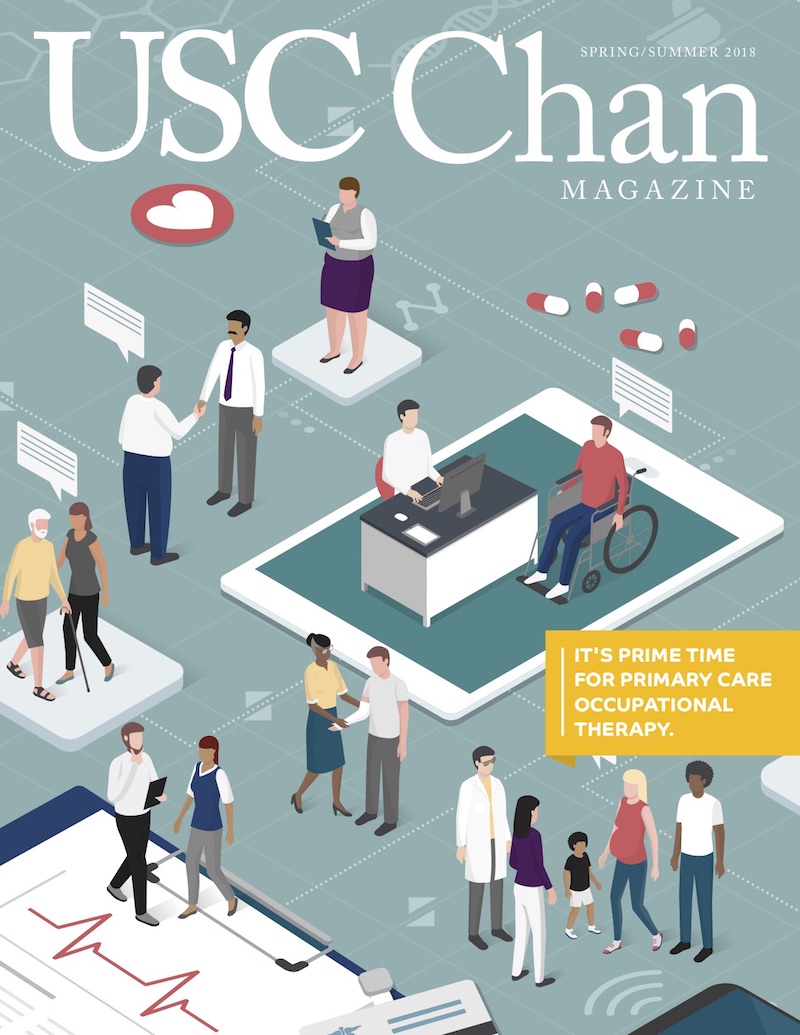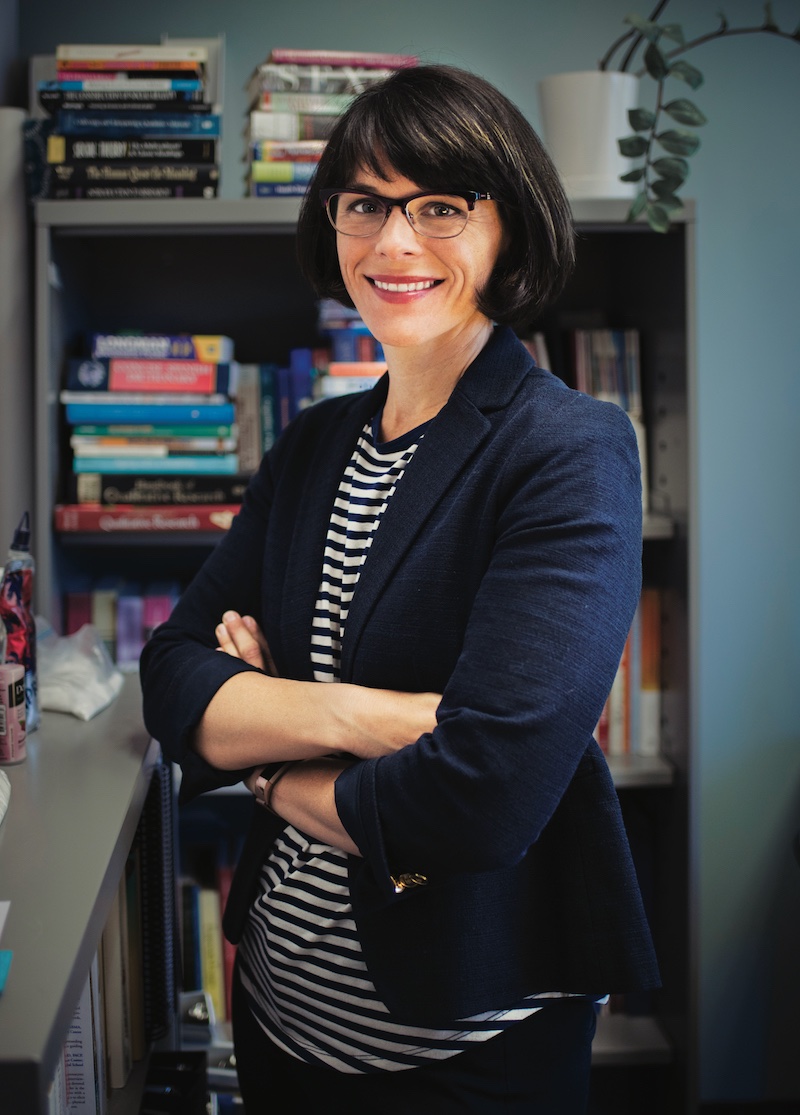REAL Diabetes
USC Chan study shows how occupational therapy can improve health, quality of life for young adults with diabetes. The NIH-funded study is the first occupational therapy research trial to appear in diabetes literature.
By John Hobbs MA ’14
When Gerardo Flores, 25, was diagnosed with type-2 diabetes, his world was turned upside down.
Fueled by 7-11’s brightly packaged fare and sugary drinks, the teenager would spend his leisure time watching Netflix movies and playing video games. But the unexpected diagnosis would need to change all that, requiring Flores to eat consciously, monitor his blood sugar levels and begin a regular fitness program.
“For me, it was a chore,” he admits. “I didn’t really care about it.”
So when Flores heard about a new study that aimed to use occupational therapy interventions focusing on the lifestyle-related activities, habits and goals for young adults who are managing their diabetes, he resisted at first, choosing denial over action.
“I just didn’t want to even talk about my diagnosis,” he says.
Eventually, though, he had a change of heart, hoping to get better control of his diabetes to pursue a dream career in criminal justice.
Getting REAL
Designed by USC Chan Assistant Professor Beth Pyatak ’02, MA ’04, PhD ’10, MS ’15, the study — called Resilient, Empowered, Active Living with Diabetes (REAL Diabetes) — is an activity-based intervention meant to address the needs of young adults like Flores.
To conduct the study, Pyatak and her team recruited 81 English- and Spanish-speaking Angelenos, ages 18-30 years old, who have diabetes and are from a low socioeconomic background.
Participants were randomly assigned to either of two groups.
Forty-one, including Flores, took part in the REAL Diabetes intervention with a licensed occupational therapist for a minimum of 10 hours over six months.
At the center of this intervention is a manual, which guides the therapist and patient through seven modules that include suggested goals, activities supporting those goals and relevant educational materials.
The modules covered assessment and goal setting, living with diabetes, access and advocacy, activity and health, social support, emotions, and well-being and long-term health.
The remaining 40 participants were assigned to a control group that consisted of an initial home visit, during which they received a packet of educational materials and 11 follow-up telephone conversations.
The results are in
Participants who completed the REAL Diabetes program showed significant improvements in their hemoglobin A1C levels, in their diabetes-related quality of life and in the strength of their habits for self-monitoring blood glucose.
“I just didn’t have good habits,” says Flores, who worked with resident Alyssa Concha-Chavez MA ’14, OTD ’15 during the study. “She went through my daily and weekly schedule and found little ways to help me out.”
Some changes Flores made included placing his glucose-reading machines in places to remind him to monitor it regularly (in the kitchen, next to his bed), learning to advocate for himself with doctors and incorporating exercise into his routine.
“This study saved my life,” says Flores, who now studies the administration of justice at East Los Angeles College. “Alyssa saw where I lived. She heard my dreams and goals and she set me on the right path to reach them.”
The results of the study were published in Diabetes Care earlier this year. It was the first time an occupational therapy clinical trial appeared in a diabetes-focused literature or journal.
“Occupational therapists are the experts of choice when it comes to the intersection of everyday activities, lifestyle and better management of chronic diseases,” Pyatak says. “The REAL Diabetes study validates our distinct contributions to an everyday diabetes care team and shows the real differences that occupational therapy can make in the lives of the 30 million Americans who have diabetes.”
The study’s co-authors include Cheryl Vigen MS ’03, PhD ’07; Jesús Díaz ’05, MA ’08, OTD ’09; Jeanine Blanchard MA ’99, PhD ’10; USC Chan alumni and doctoral students; and faculty members from the Keck School of Medicine of USC, the USC Dornsife Center for Economic and Social Research and the Yale School of Nursing.
REAL Diabetes was funded by a three-year K01 grant funded by the NIH National Institute of Diabetes and Digestive and Kidney Diseases. Pyatak is the principal investigator.
⋯







